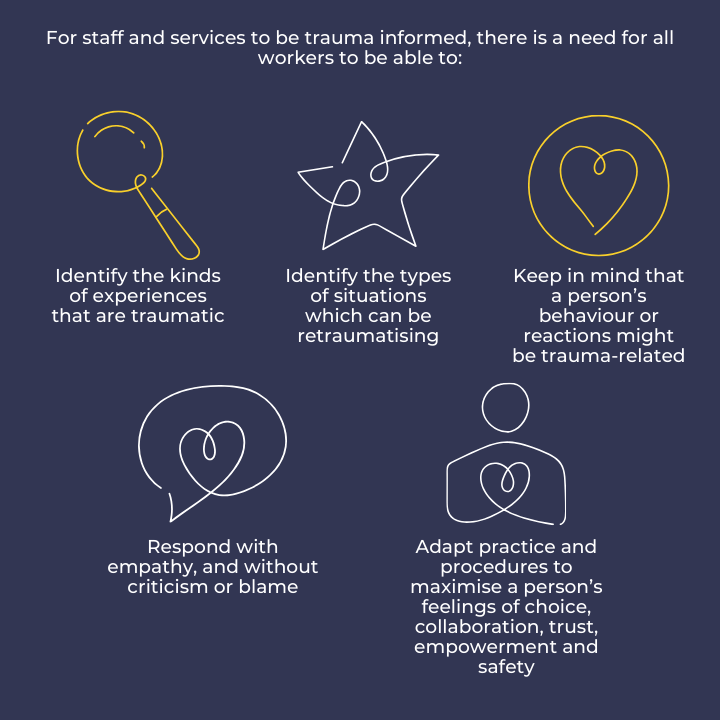
Traumatic events are defined as:
“An event, a series of events or a set of circumstances that is experienced by an individual as physically or emotionally harmful or life threatening”.
Experience of trauma is highly prevalent amongst those seeking support for substance use, with 75% of women and men attending substance use services reporting abuse and trauma in their lives. Trauma Informed Practice recognises “the prevalence and potential impact of trauma and seeks to avoid the potential for people to exclude themselves from services as a result of trauma related distress triggered by any aspect of contact with staff and services”. There is increasing recognition in Scotland that trauma related skills are essential across the whole workforce, not just for those providing services directly to those affected by trauma.


The NHS Education Scotland Knowledge and Skills Framework for trauma outlines four practice levels reflecting various types of workers’ roles in responding to the impact of trauma. While all workers should aspire to be trauma informed, those who have a greater level of contact with individuals who are likely to be, or are known to be, affected by trauma can work towards trauma skilled, trauma enhanced and trauma specialist practice levels.